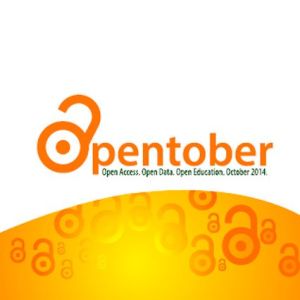It’s all about access.
As a major research university, Colorado State spends millions of dollars each year on subscriptions to thousands of scholarly publications. The information these journals contain is vital to the work of faculty and researchers on campus who learn from findings by and share their data with others in their field.
 But what if instead of being locked up in expensive journals that take months if not years to publish, the results of all that research were freely accessible to anyone interested anywhere in the world?
But what if instead of being locked up in expensive journals that take months if not years to publish, the results of all that research were freely accessible to anyone interested anywhere in the world?
That’s the concept behind the international Open Access movement, which encourages free, immediate, online access to the results of scholarly research and the right of anyone to use and reuse those results. Advocates argue that open access can benefit innovation, discovery, education and a better world by transforming the way research and scientific inquiry are conducted.
Some of the wild-eyed dreamers who support the revolutionary notion of Open Access include Nobel laureates, internationally respected researchers, and CSU’s own Vice President for IT and Dean of Libraries Patrick Burns.
“We can’t continue to pay for journal titles that just keep getting more expensive; the only way we can be sustainable in the future is open access,” Burns said. “There are many high-quality academic journals that have already adopted the open access model, and we will work with faculty to identify them and buy the necessary licenses so everyone can have access to their publications.”
Randy Schekman, who won the Nobel Prize for Medicine in 2013, talked about the open-access science journal that he edits, eLife, here on campus last semester, and SPIE, the international society for optics and photonics, has made the research papers of six of this year’s laureates available for free through its digital library .
Opentober
Open Access is celebrated around the world each October with Open Access Week. CSU has been celebrating all month with Opentober. Events so far have included well-attended screenings of films in the public domain introduced by CSU experts and free coffee and information outside Morgan Library to help raise awareness of Open Access. Free coffee and movies continue through the month, wrapping up with the classic “Night of the Living Dead” on Oct. 30 at 5 p.m. in the Library Event Hall.
On Oct. 20, the official start of Open Access Week, the library offers a livestream of the kickoff events at 1 p.m. in the Library Event Hall. This will be followed at 2 p.m. in Library Classroom 173 by an introduction to editing in Wikipedia, the largest open access project ever undertaken, in preparation for the centerpiece of Open Access at CSU: the all-day Water on Wikipedia Editathon — WOW-E — that kicks off at 10 a.m. on Oct. 21.
Librarian Shea Swauger, organizer of the Editathon, said the committee was looking for a topic that would have broad appeal and would make a meaningful contribution to the national event.
“We know water is a vital topic, not only in Colorado, but all over the West, and that Colorado State has some of the nation’s outstanding experts right here on campus,” Swauger said. “When we looked at what was already on Wikipedia, it seemed like the perfect topic to tackle.”
WOW-E all over the West
Swager also invited other universities to participate in updating and improving the information on Wikipedia about water research and issues in their states as part of the Editathon. Universities in California, Washington, Idaho and Montana are all throwing Editathons on Tuesday as well.
“We reached out to the Colorado water community to see what they thought of the idea,” said Patricia Rettig, head archivist for the Water Resources Archive at the CSU Libraries. “They agreed that the water information on Wikipedia right now isn’t all it could be, and they are looking forward to contributing to improve it. The younger members of the faculty are especially eager to jump in and add their expertise. The Editathon gives them an opportunity to participate in a guided, helpful way.”
As more serious researchers have endorsed Open Access over the past decade, the quality of the information on Wikipedia and other online sources has improved, according to Swauger, because of the vigilance of the community.
“We’ve let the Wikipedia editors know about the event, and they will be watching for anything inappropriate,” he said. “Even without an Editathon, anything that is reported to the editors is usually dealt with in a matter of hours.”
Faculty support
And while the University could save a lot of money on journal subscriptions, it is also willing to spend some to support faculty members who choose to publish in select Open Access journals or make their research freely available. Faculty can apply for up to $2,000 from the Open Access Research and Scholarship (OARS) Fund to offset author’s fees associated with Open Access publication.